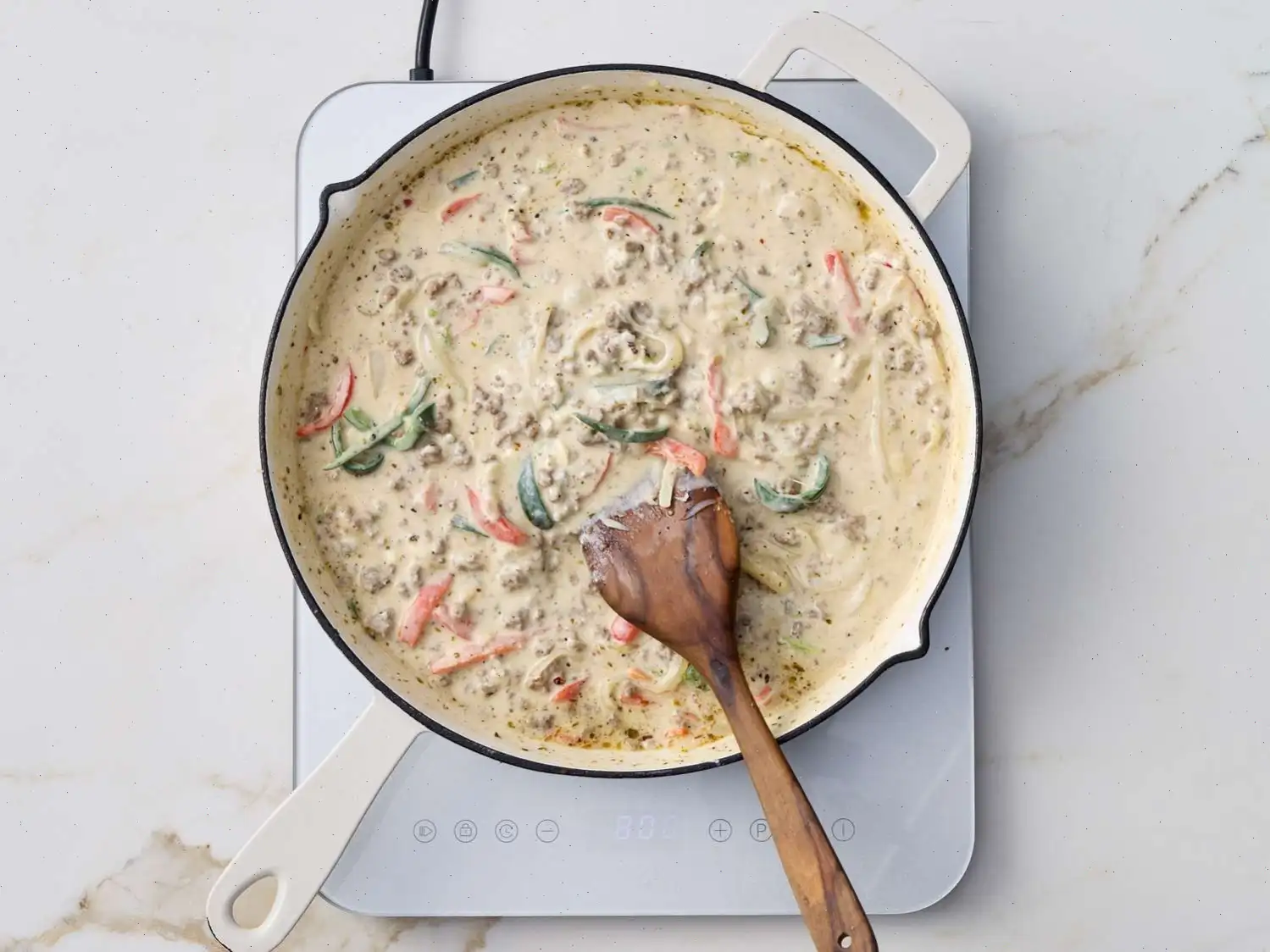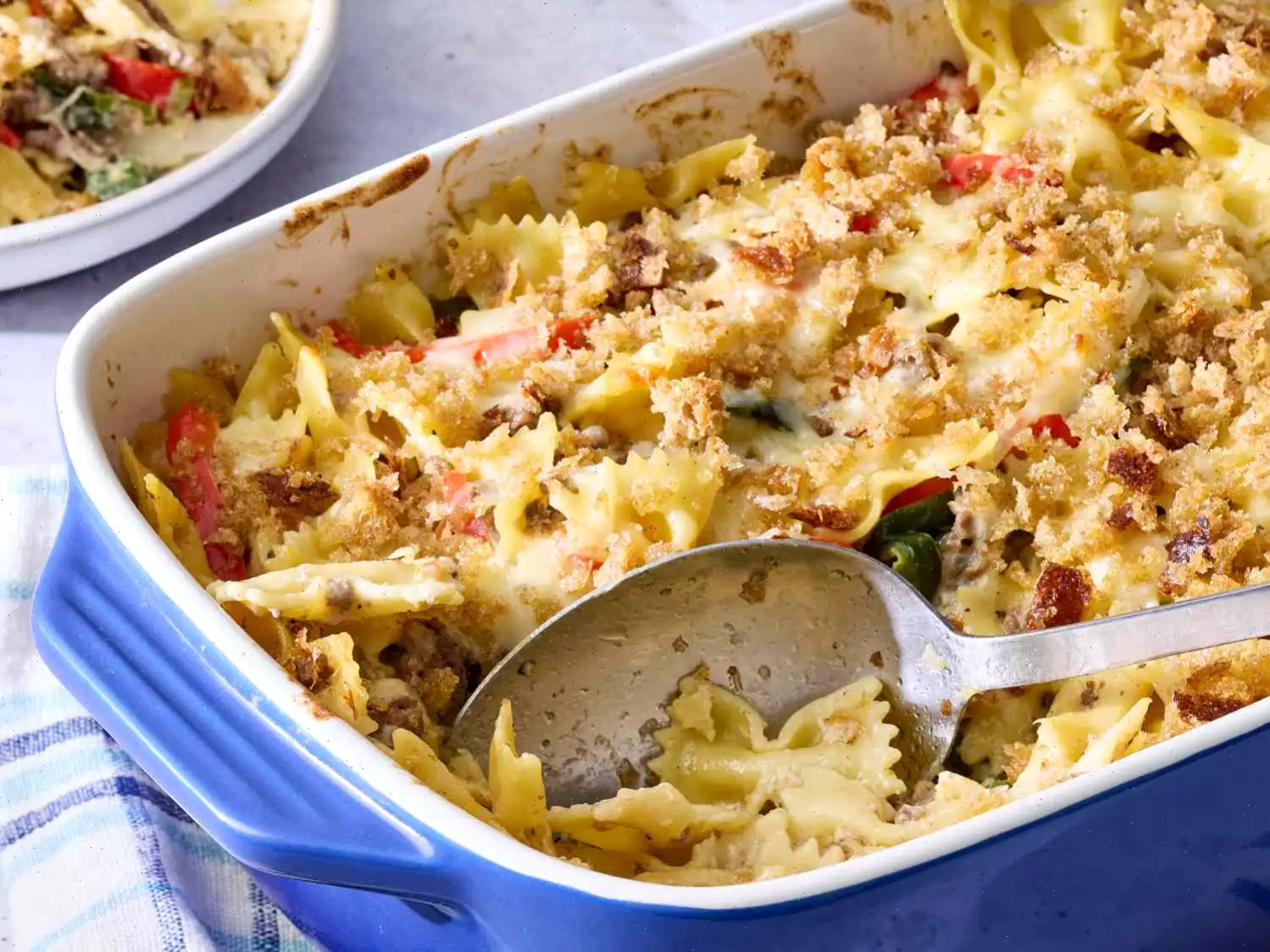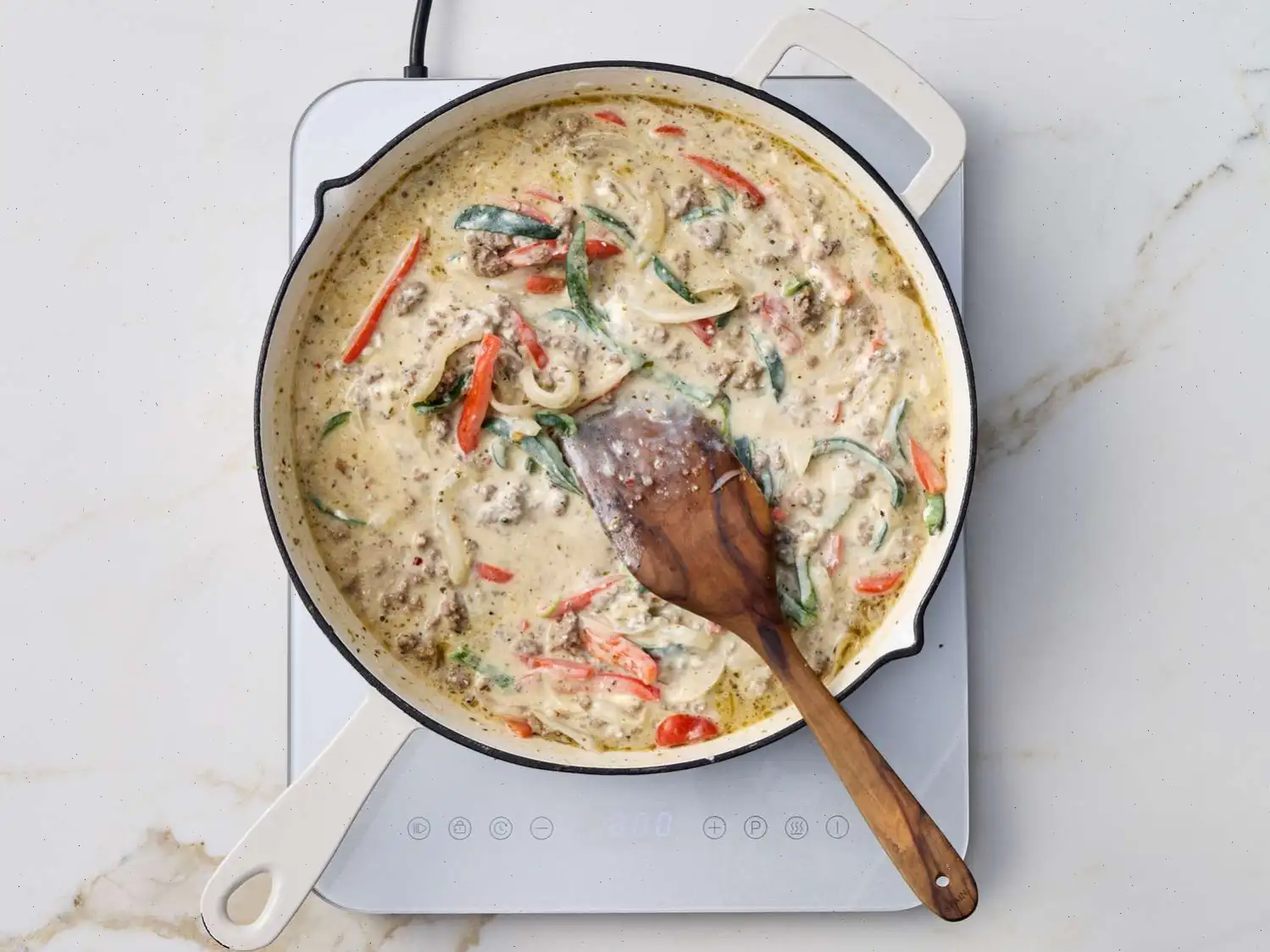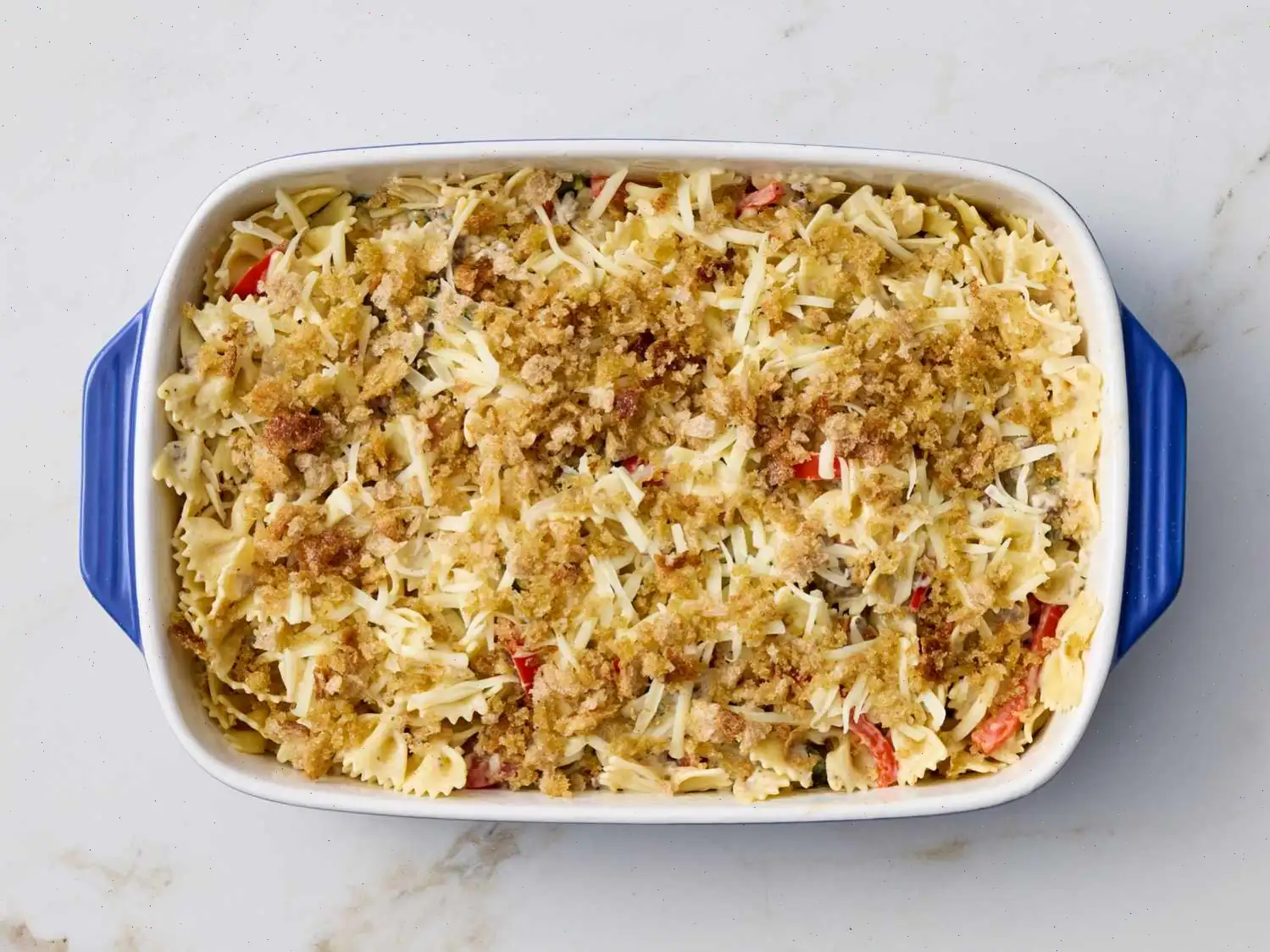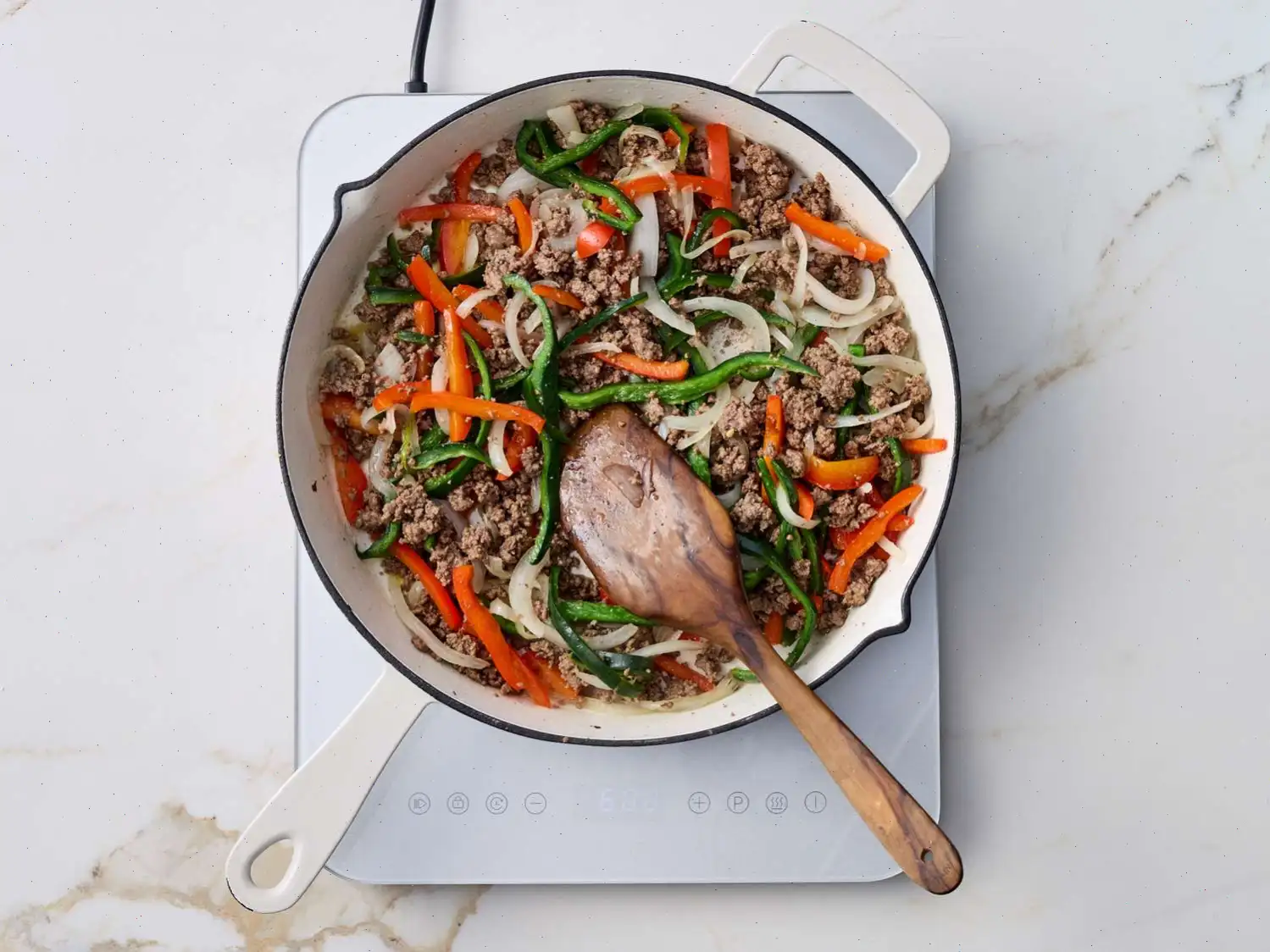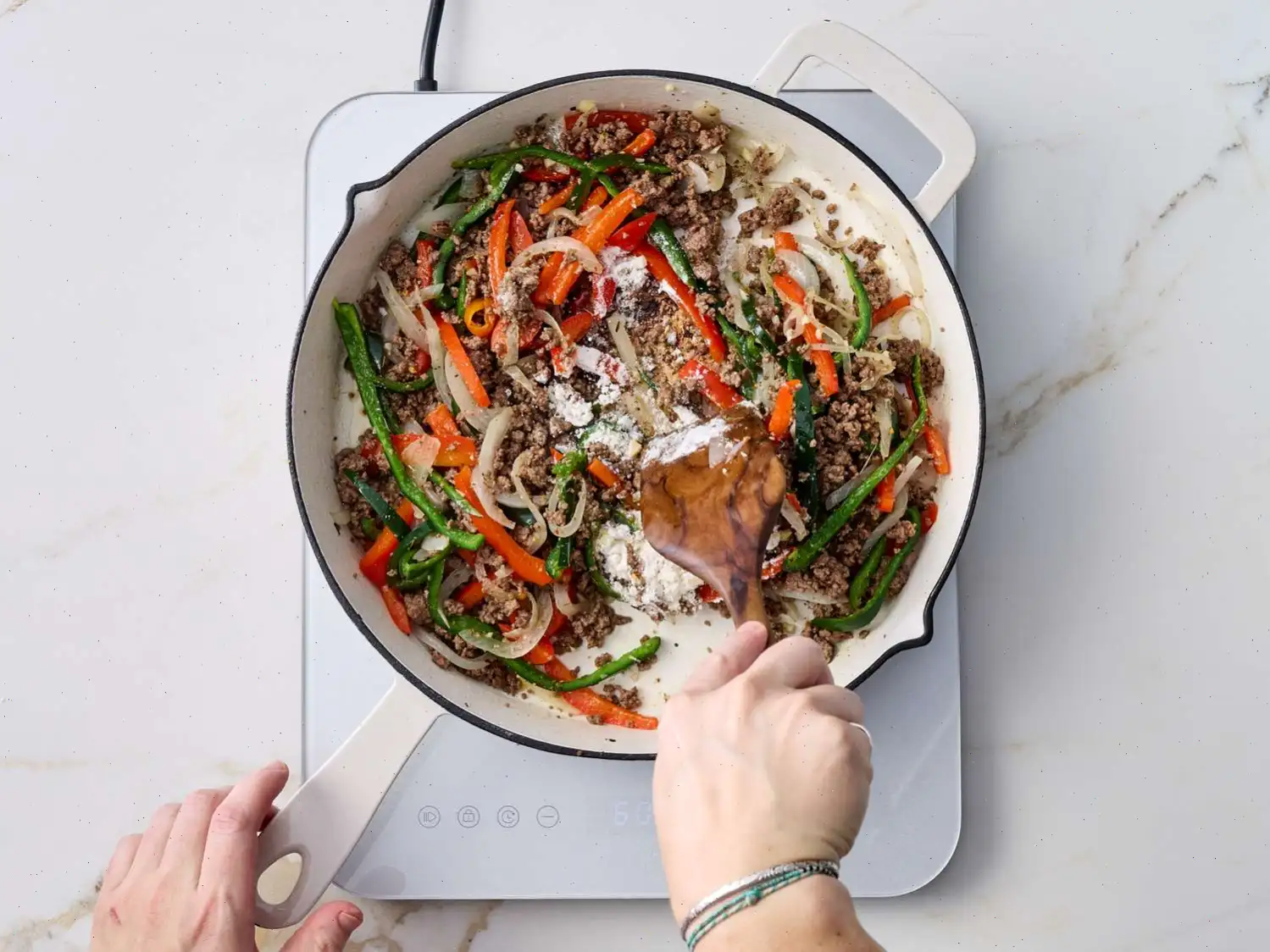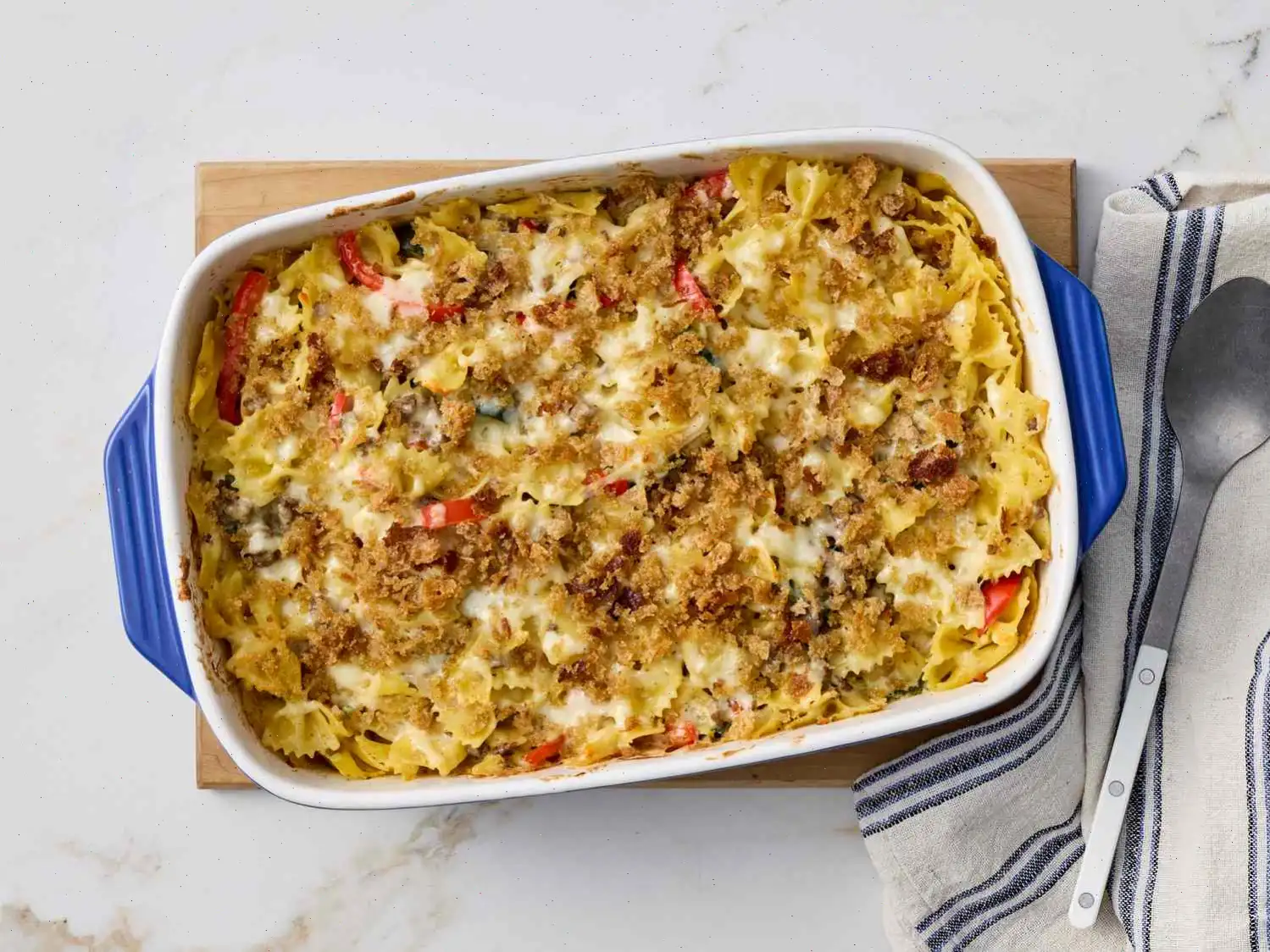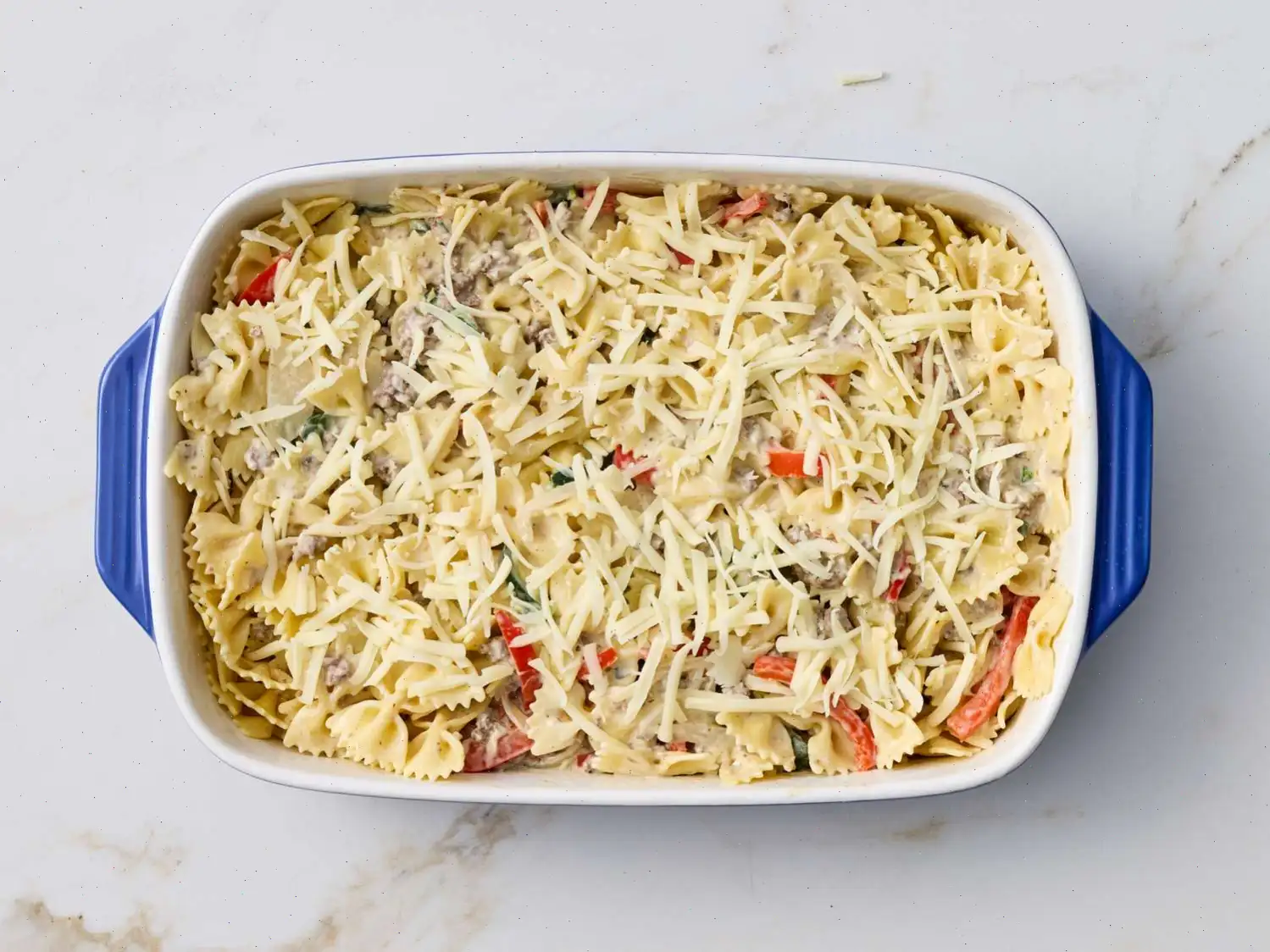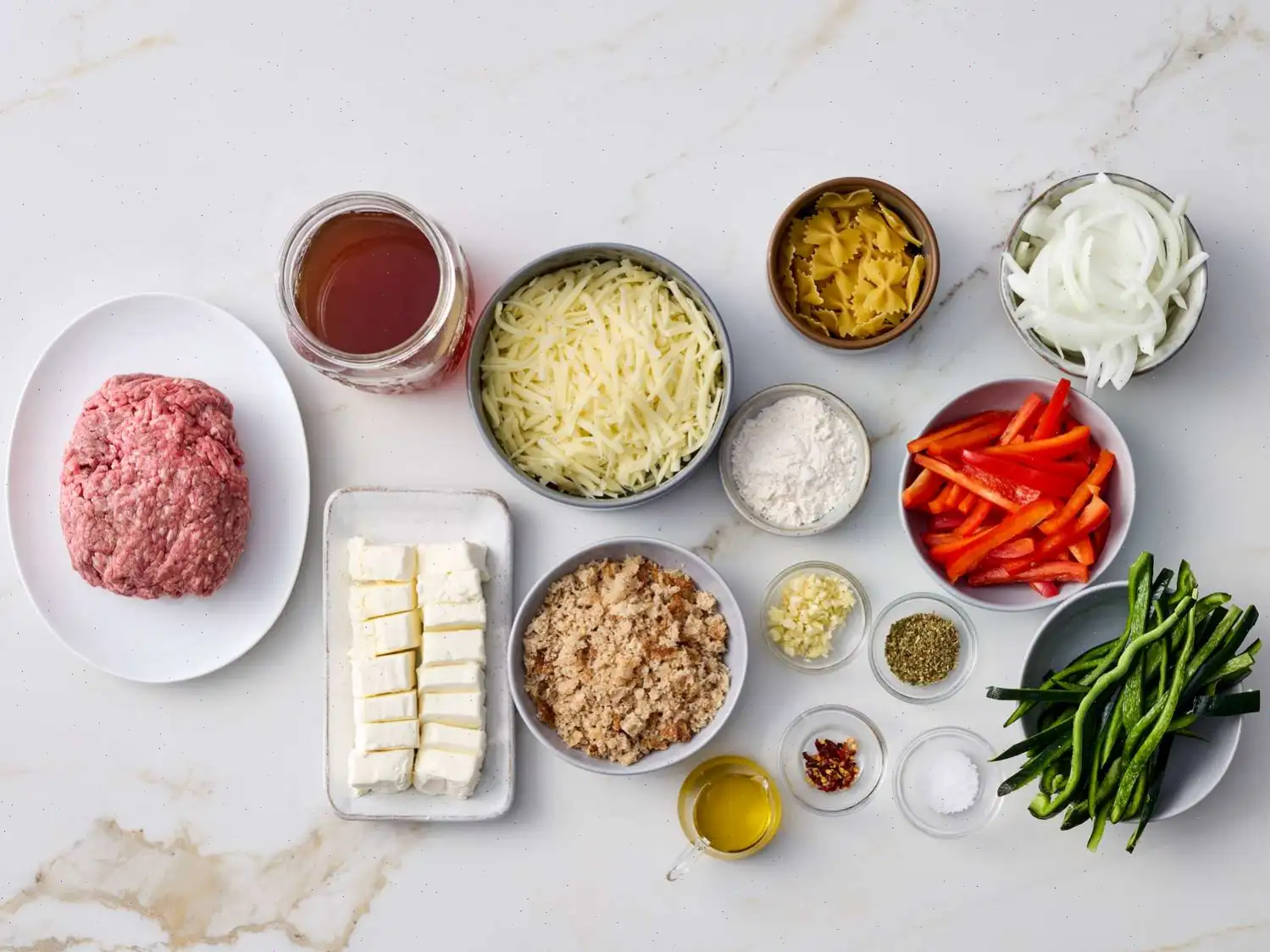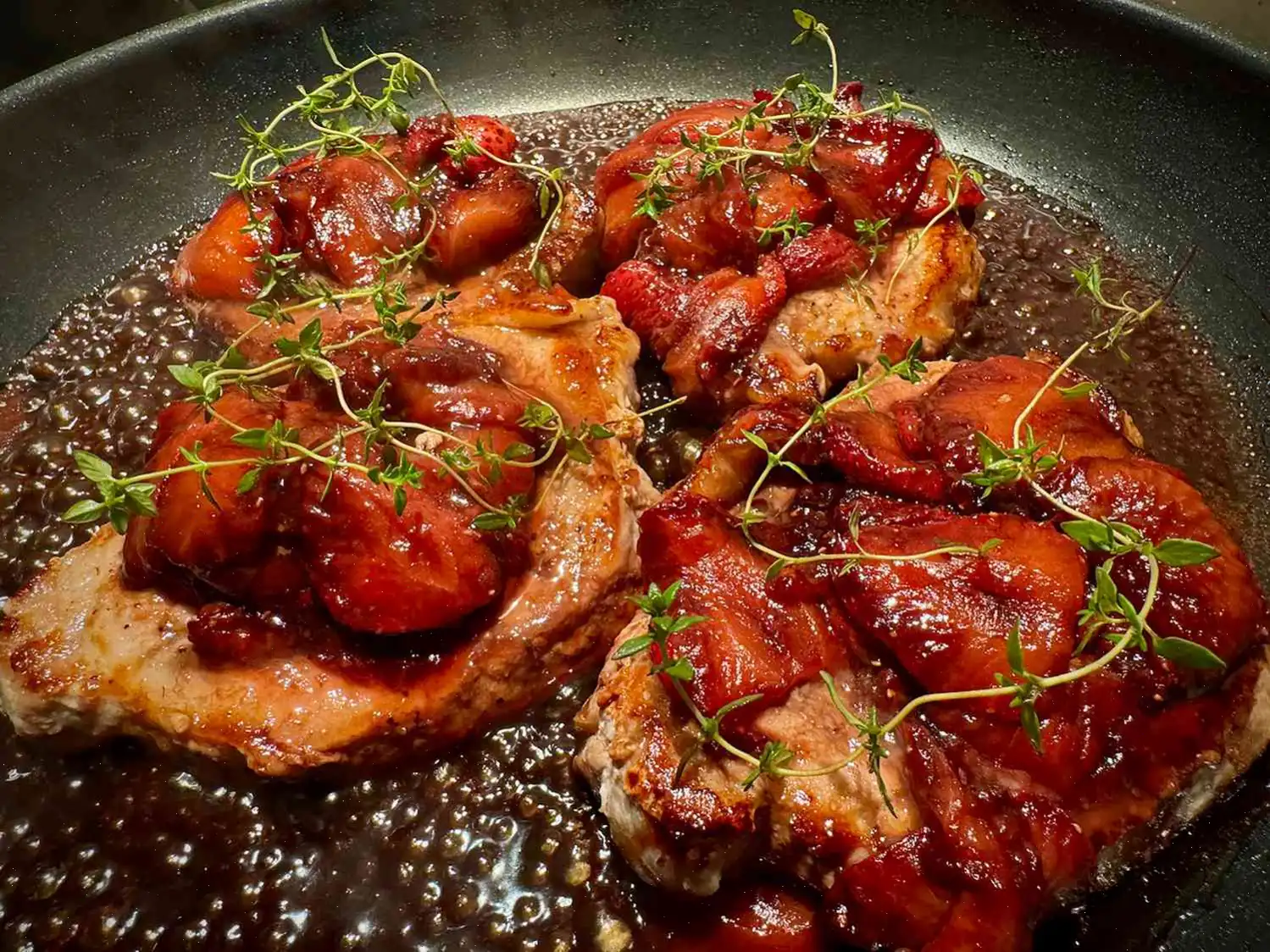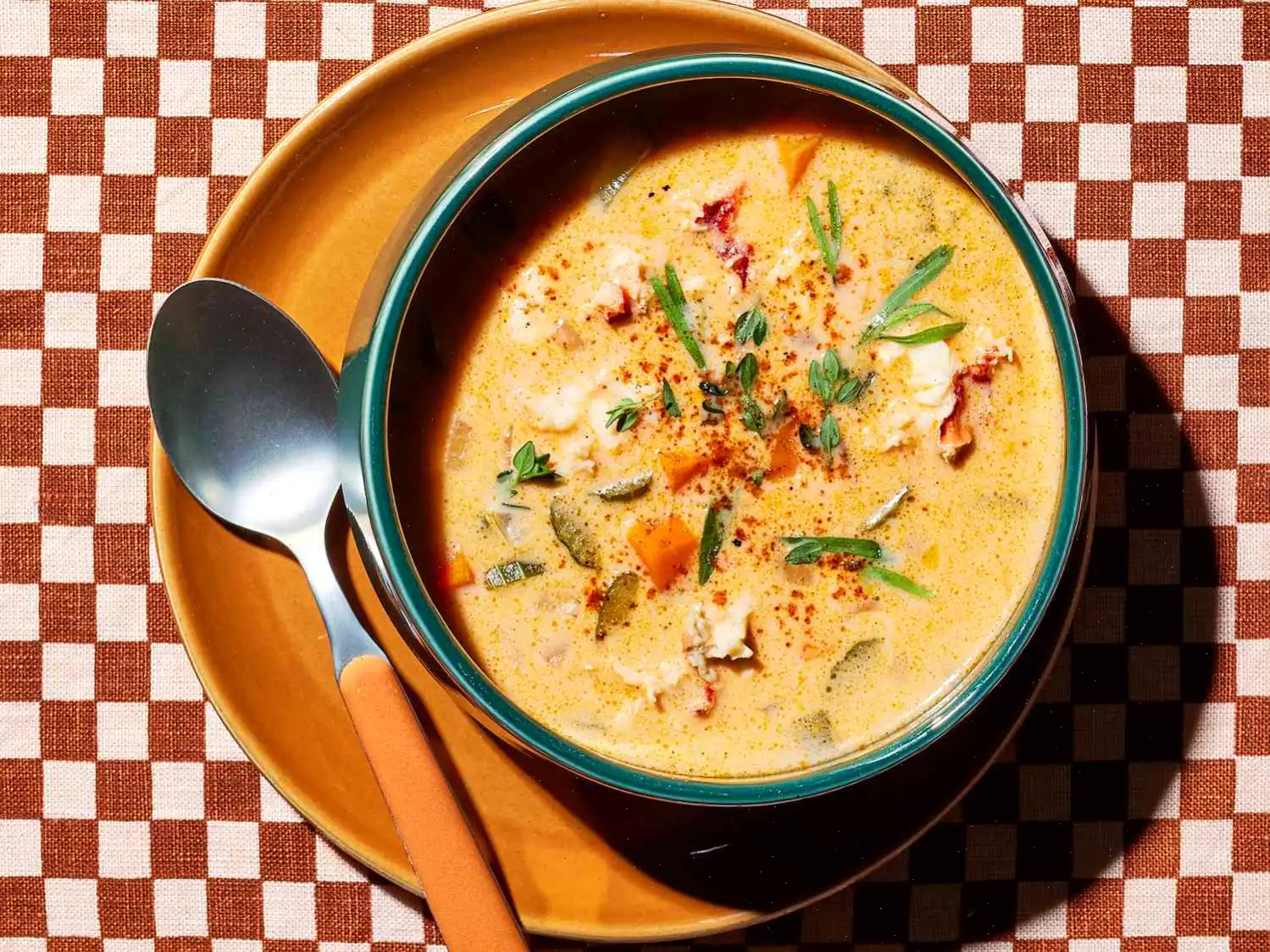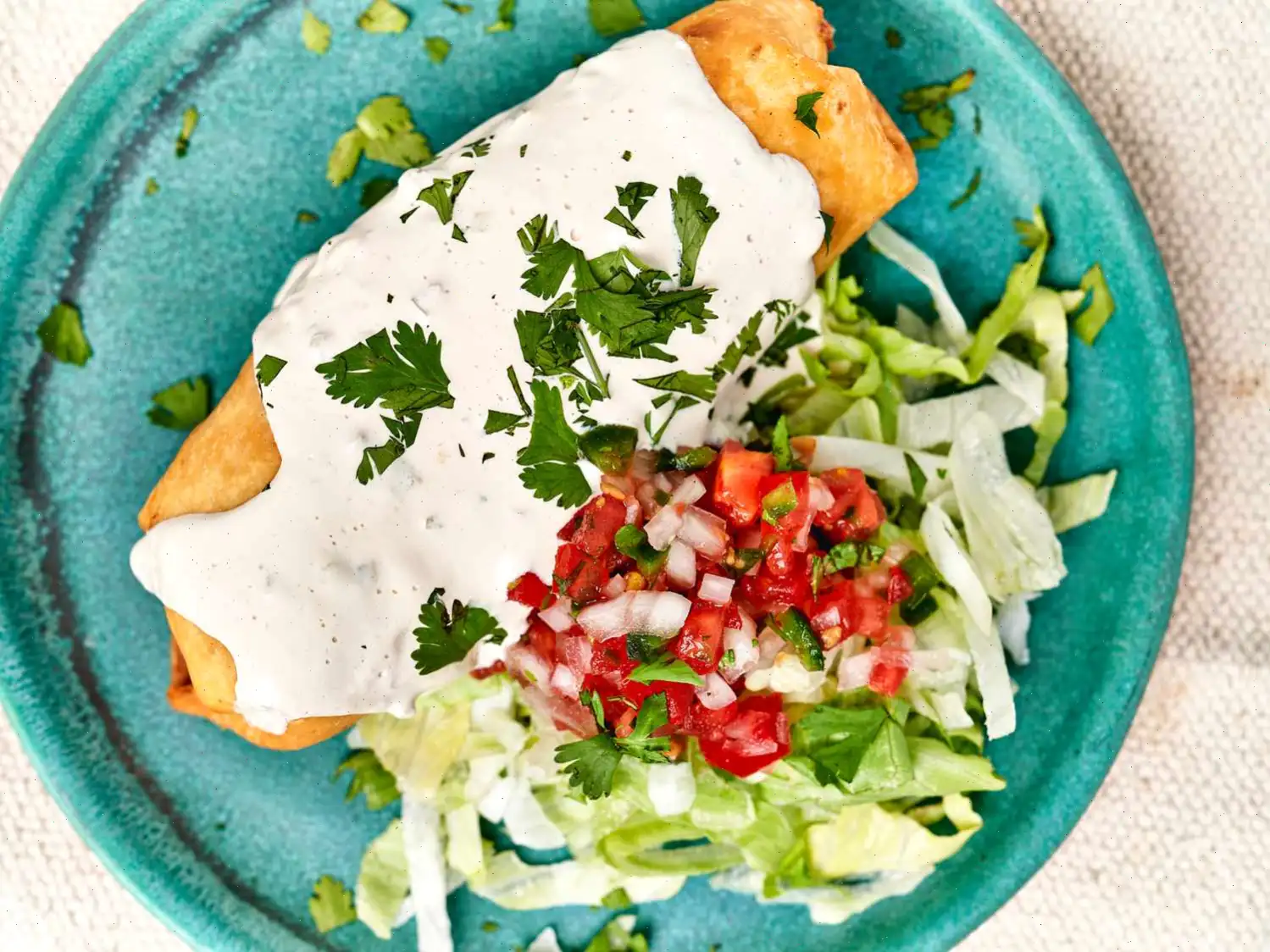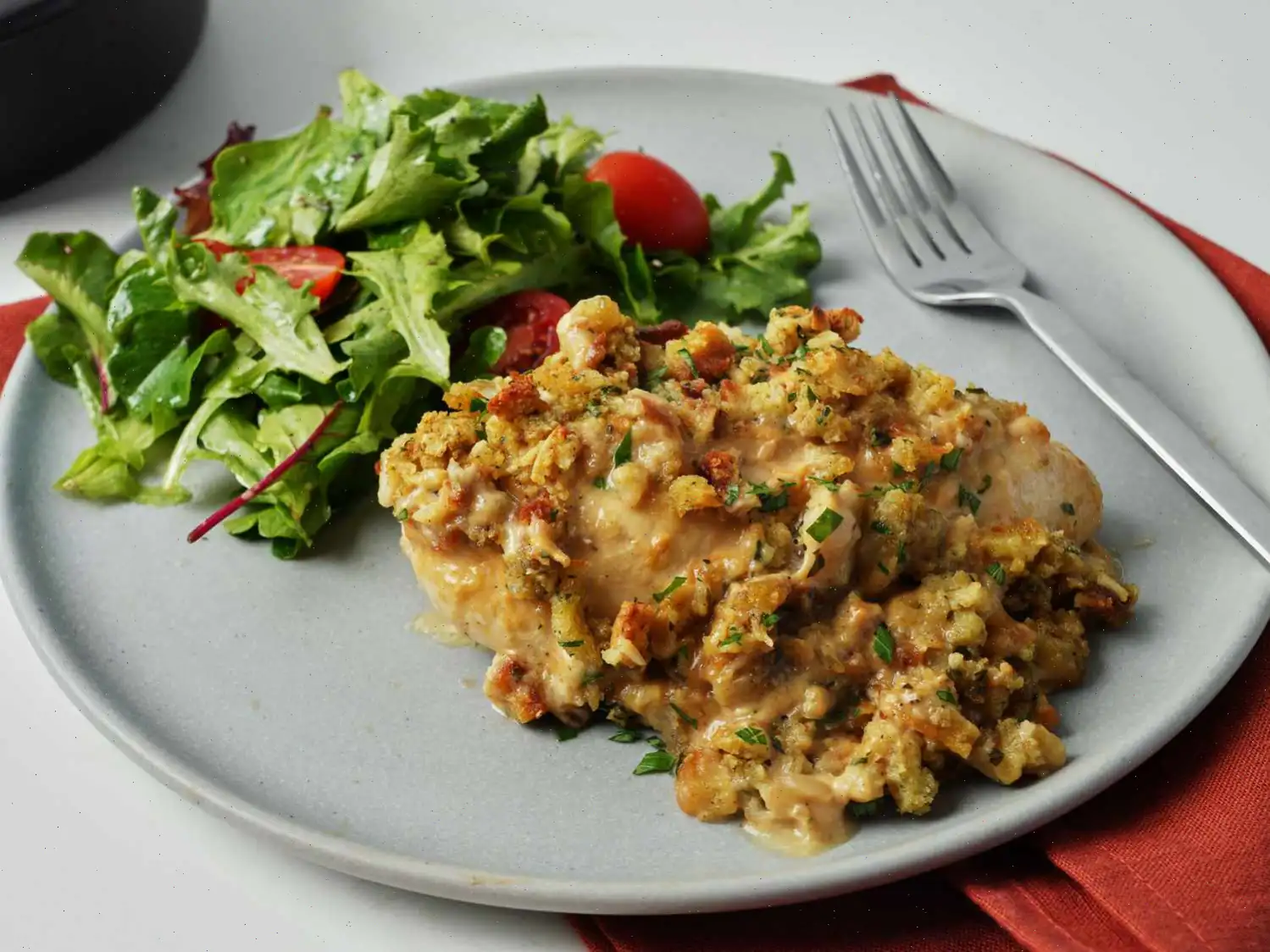
Receta de Cazuela de Philly Cheesesteak
Esta cazuela de Philly Cheesesteak es una versión deliciosa del sándwich clásico. Llena de carne tierna, cebolla, pimientos y queso derretido, esta cazuela seguro que encantará a toda la familia. Sírvela para la cena o como aperitivo para impresionar a todos en tu próxima reunión. ¡Es fácil de hacer y aún más fácil de devorar!
Ingredientes
- 450 g de pasta tipo lazo
- 3 cucharadas de aceite de oliva, divididas
- 450 g de carne molida de res
- 1 pimiento poblano o verde, cortado en tiras finas
- 1 pimiento rojo o amarillo, cortado en tiras finas
- 1 taza de cebolla dulce en rodajas finas
- 2 dientes de ajo, picados muy finos
- 1 cucharadita de organo seco
- cucharadita de sal
- cucharadita de hojuelas de chile rojo
- 3 cucharadas de harina de trigo
- 1 lata (410 g) de caldo de res bajo en sodio
- 1 paquete (225 g) de queso crema, cortado en cubos y suavizado
- 1 tazas de queso provolone rallado, dividido
- 1 taza de pan rallado suave
Instrucciones
- Precalienta el horno a 190C (375F) y engrasa ligeramente una fuente para hornear de 23x33 cm.
- Cocina la pasta segn las indicaciones del paquete, escrrela y colcala en la fuente preparada.
- En una sartn grande, calienta 1 cucharada de aceite de oliva a fuego medio. Dora la carne molida durante 4 minutos, desmenuzndola mientras se cocina.
- Agrega los pimientos y la cebolla en tiras. Saltea por unos 8 minutos hasta que la carne est cocida y las verduras tiernas.
- Incorpora el ajo picado, el organo, la sal y las hojuelas de chile. Cocina 1 minuto hasta que desprenda aroma.
- Espolvorea la harina sobre la mezcla y revuelve constantemente durante un minuto para integrarla bien.
- Vierte el caldo de res poco a poco, lleva a hervor y remueve hasta que la salsa espese y burbujee.
- Agrega los cubos de queso crema y mezcla hasta obtener una salsa homognea y cremosa.
- Incorpora 1 taza de queso provolone rallado y cocina hasta que se funda completamente en la salsa.
- Mezcla la preparacin de carne y verduras con la pasta en la fuente, asegurando que todo quede bien combinado.
- Espolvorea encima la taza restante de queso provolone.
- En un bol pequeo, mezcla el pan rallado con las 2 cucharadas restantes de aceite de oliva y distribyelo sobre la superficie de la cazuela.
- Hornea durante 20 minutos o hasta que la parte superior se vea dorada y burbujeante.
Informacin Nutricional por Porcin
- Caloras: 730
- Grasas totales: 42 g
- Grasas saturadas: 19 g
- Colesterol: 125 mg
- Sodio: 1091 mg
- Carbohidratos totales: 47 g
- Fibra diettica: 3 g
- Azcares: 5 g
- Protenas: 39 g
- Vitamina C: 67 mg
- Calcio: 334 mg
- Hierro: 5 mg
- Potasio: 621 mg
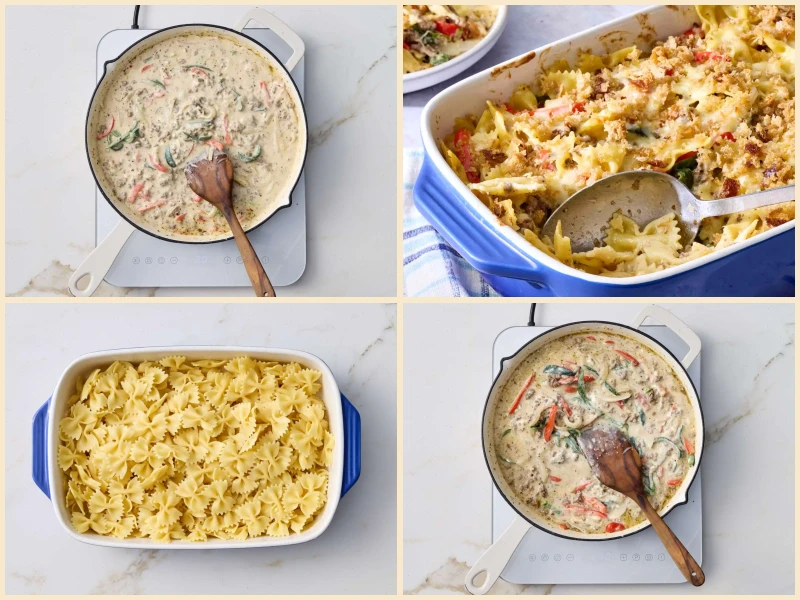
La cazuela de Philly cheesesteak es una versin moderna del icnico sndwich de Philly cheesesteak de Filadelfia, que se origin a principios de la dcada de 1930. La leyenda le da el crdito a Pat Olivieri, un vendedor de hot dogs, como el inventor del sndwich original. Se dice que Olivieri cocin carne de res finamente rebanada en una plancha y la sirvi sobre un pan hoagie. Con el tiempo, este sndwich clsico adquiri fama por su combinacin rica de carne, cebollas, pimientos y queso derretido.
La versin en cazuela adapta estos sabores a un plato horneado y sustancioso, lo que lo hace ms fcil de servir a varias personas a la vez, manteniendo el sabor querido del sndwich original.
Caractersticas Regionales
Si bien el Philly cheesesteak original est estrechamente relacionado con Filadelfia, la variante en cazuela refleja las tradiciones ms amplias de la comida reconfortante americana. En esta versin, la pasta y una salsa cremosa de queso suelen sustituir el pan hoagie, ofreciendo una comida ms sustanciosa y horneada, ideal para cenas familiares. Las variaciones regionales pueden incluir diferentes tipos de pimientos o quesos: el provolone sigue siendo el clsico, pero tambin pueden aparecer el cheddar o la mozzarella dependiendo de las preferencias locales.
Este plato se ha popularizado en los hogares suburbanos de todo Estados Unidos, especialmente en el noreste, la regin de origen del sndwich original.
Cmo Se Distingue de Otros Platos Similares?
La cazuela de Philly cheesesteak se distingue de otras cazuelas de carne y queso por su combinacin nica de carne finamente rebanada, pimientos dulces y suaves, cebollas, y una salsa de provolone y queso crema fundidos. A diferencia de las cazuelas de carne tradicionales, que suelen depender de salsas a base de tomate, este plato resalta los sabores cremosos y sabrosos, con un toque ligeramente crujiente en la parte superior gracias al pan rallado.
No es una cazuela de pasta tradicional, ya que el perfil de sazn y los ingredientes estn directamente inspirados en el Philly cheesesteak de Filadelfia, en lugar de seguir las recetas de la comida italiana-americana.
Ocasiones Tpicas de Servir
Esta cazuela se sirve comnmente como un plato principal reconfortante para reuniones informales, cenas de noche entre semana o fiestas durante eventos deportivos. Funciona bien como opcin para buffet o "potluck", ya que se puede hacer con antelacin, hornear y mantener caliente. Muchas familias la acompaan con una ensalada verde simple o verduras asadas, aunque su riqueza hace que a menudo sea satisfactorio como plato nico.
En algunos restaurantes, ocasionalmente aparece en los mens de gastropubs o comedores que ofrecen versiones innovadoras de los clsicos sndwiches americanos.
Datos Interesantes
- El sndwich original de Philly cheesesteak se venda por solo 50 centavos en la dcada de 1930, mientras que hoy en da la cazuela permite disfrutar de los mismos sabores para alimentar a toda una familia, a un costo similar por porcin.
- La versin en cazuela se puede personalizar fcilmente segn las preferencias dietticas, como sustituir carne de res por pavo o pollo, o usar pasta sin gluten.
- Muchos chefs aaden un toque de salsa picante o pimiento rojo triturado para imitar el perfil de sabor audaz de los Philly cheesesteaks estilo callejero.
- A pesar de estar inspirada en un sndwich, esta cazuela ha adquirido identidad propia y a veces se le conoce en crculos culinarios como "Philly cheesesteak deconstruido".
- La tcnica de capas de pasta, carne y queso asegura que cada bocado tenga una mezcla equilibrada de texturas, desde lo cremoso hasta lo ligeramente crujiente en la parte superior.
Preguntas frecuentes sobre Receta de Cazuela de Philly Cheesesteak
Compartir
Comentarios
Michelle Robinson
01/20/2024 11:41:26 AM
Absolutamente fantástico, toda la familia lo logró a la perfección.
Stephanie Taylor
03/22/2025 08:18:15 PM
¡Me gustó mucho! Gracias por compartir la receta conmigo.
Mark Williams
12/16/2023 04:34:09 PM
Revisé el plato a los 18 minutos y estaba listo; la próxima vez podría revisar a los 15 minutos. Estaba un poco seco, así que agregar más caldo o reducir la cantidad de pasta según el gusto personal podría solucionarlo. En lugar de colocar la pasta cocida en capas en la fuente y luego la mezcla de carne, decidí mezclarlas en la sartén antes de pasarlas a la fuente. Este método asegura mejor mezcla y menos desorden. Dividir la receta a la mitad funcionó bien, y a pesar de los muchos ingredientes, el plato quedó muy sabroso.
Stephen Thomas
09/16/2024 02:27:44 AM
Me encanta este plato.
Laura Collins
03/24/2024 08:56:58 PM
Debe estar excelente.
Karen Lee
11/26/2023 01:45:34 PM
Increíblemente aburrido y sin interés

